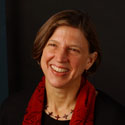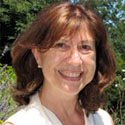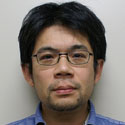Advisory Board and Editors Genetics

Pamela C Ronald
Professor, Dept Plant Pathology and the Genome Center, UC Davis. Director, Grass Genetics, JBEI. Fellow of the American Association for the Advancement of Science. Recipient of the USDA 2008 National Research Initiative Discovery Award. 2009 recipient of the National Association of Science Writers Science in Society Journalism Award. Selected as one of the 100 most creative people in business by Fast Company Magazine. Co-author of Tomorrow's Table: Organic Farming, Genetics, & the Future of Food

Rajib Roychowdhury
Dr. Rajib Roychowdhury is a Visiting Scientist at the Department of Plant Pathology and Weed Research in Agricultural Research Organization (ARO) - The Volcani Center, Israel. His primary research interest is focused on crop genomics and genetics for abiotic stress response and disease resistance mechanism. Presently he is working on viral disease resistance of citrus and grapevine. Previously he worked on major cereals (wheat. Rice, barley) and berry fruits (strawberry, blueberry) for fungal disease resistance, yield and quality improvement, and osmotic stress (drought, heat, salinity) tolerance under challenging climate. He worked a lot on mutation breeding in carnation, which was a pioneer work on this floricultural crop in South-East Asia. He was elected as a Fellow Member of the Linnaean Society of London, UK. His biography was published in the Pearl Edition of Marquis Who’sWho of the World, USA. In 2019, he got the travel award by International Wheat Initiative (Germany) for presenting his research in 1 st International Wheat Congress, Saskatoon, Canada. He has a plenty number of impacted research papers, review articles, invited chapters and books in both international and nationally reputed journals and publishers. Currently he is serving in the editorial board of Frontiers in Genetics, Agronomy, South African Journal of Botany.

Nicoletta Sacchi
Nicoletta Sacchi, Professor of Oncology and Distinguished Member of Genetics at the Roswell Park Cancer Institute (Buffalo) previously worked at the Johns Hopkins University, the National Cancer Institute, and the University of Milan. Together with Piotr Chomczynski, she identified the principle for the separation of RNA from DNA in 1987 that led to the classic Single Step Method for RNA isolation. Her expertise is in the field of genetics and epigenetics of cancer.

Antonio Salas
I am a Professor at the University of Santiago de Compostela (Galicia, Spain). During the last few years I have been investigating in various fields of biomedical research, such as the analysis of genetic susceptibility to complex and common diseases (breast cancer, schizophrenia, autism, etc.), rare diseases (Wilson's disease, congenital ichthyosis, mitochondriopathies, etc.), bioinformatics / biostatistics (regarding HapMap, 1000 Genomes, statistical procedures in epidemiology and genetics, etc.), molecular / archeo-genetic anthropology, and forensic genetics (population sub-structure, interpretation (statistics) of the test Medical-legal research haplotype markers, etc).
I am the head of a consolidated research group, GenPoB (Population Genetics in Biomedicine), based at the Health Research Institute (IDIS) of Santiago de Compostela (Galicia, Spain), that is in turn integrated into the Genetics and Systems Biology group.
For more than a decade I have been heavily involved in a variety of projects related to genomics and other fields of -omic ’sciences (e.g. transcriptomic, epigenomic), in complex pediatric diseases, infectology and vaccinomics.

Albert Salas-Huetos
Dr. Salas-Huetos obtained his Bachelor of Science (Biology) from the Universitat de Girona (UdG) in 2009, his MSc in Cell Biology in 2010 at the Universitat Autònoma de Barcelona (UAB), and his Ph.D. in Cell Biology (Cum-Laude and Extraordinary Doctorate Award) in 2016 at the same University (UAB). He joined the Genetics of Male Fertility group (UAB) as a PhD Student, and Human Nutrition Unit (Universitat Rovira i Virgili; URV) in 2016 as a Post-doctoral Fellowship. He spent a three-month Post-doctoral stay (September-December 2017) at Universidad de Guadalajara in Mexico. In 2018, he joined the University of Utah (USA) and in 2020 the Harvard T.H. Chan School of Public Health (Harvard University; USA) as a Post-doctoral Fellow. Nowadays he is a Visiting Scholar at Harvard University for the Department of Nutrition, Harvard T.H. Chan School of Public Health and a Post-doctoral Fellow at Universitat de Girona (JdlCI). Currently, he is working on different large international multicentric projects related to genetics and epigenetics of male (in)fertility, and nutrition. The main contributions of his scientific activity are reflected in a total of 63 original articles (Q1: 51/63; first or corresponding author: 23/63) in SCI/JCR-journals (+ 5 submitted), and 3 book chapter (+2 submitted). He has attended 9 national/international conferences as invited (plenary) speaker and he was the leading author of 10 contributions in international conferences (+15 as a collaborator author).

Michael Sammeth
I am a researcher in computational biology and my story starts at the Federal University of Würzburg (2002), where graduated in biology (major: biochemistry, genetics & neurobiology, virology & immunology, minor: computer science). My PhD studies were supported by the Ernst Schering Research Foundation, and I studied specialized algorithms for multiple sequence alignments at Bielefeld University and at the Free University of Amsterdam. The German Academic Exchange service funded my post-doctoral studies at the University Pompeu Fabra, where I started to work on genomics and (alternative) splicing. I followed these research lines at the newly created Center for Genomic Regulation in Barcelona, supported by a young researcher grant by the Spanish Ministry of Education and Science. Afterwards, I started my first group in Functional Bioinformatics at the Spanish National Sequencing Center, focusing on all aspects of functional elements as assessed by novel sequencing technologies.
Since 2013 I located to Brazil, where I researched at the National Center for Computational Science before joining the Biophysics Institute Carlos Chagas Filho at the Federal University of Rio de Janeiro. The research in my lab focuses on functional genomics and transcriptomics in general.

Primo Schär
PhD University of Berne, Switzerland with Prof. J. Kohli; Research focus: Yeast genetics, mechanisms of meiotic recombination.
Postdoctoral fellow at the University of Berne, Switzerland with Prof. J. Kohli; Research focus: Yeast genetics and DNA Mismatch Repair in Meiotic Recombination.
Postdoctoral fellow at the Imperial Cancer Research Fund (Cancer Research UK), London UK, with Prof. Tomas Lindahl; Research focus: Function of DNA ligases in yeast and mammalian DNA repair, DNA base excision repair.
Junior research group leader at the Institute of Molecular Cancer Research, University of Zürich, Switzerland; Research focus: Genome Stability, DNA double strand-break repair and DNA base excision repair in yeast and mammalian cells.
Since 2003 Professor and research group leader at the Department of Biomedicine, University of Basel, Switzerland; Research focus: Molecular mechanisms underlying (Epi)Genome plasticity in stem cells, DNA base excision repair in DNA demethylation and cell fate programming.

Yuan Shang
Dr. Yuan Shang works on Alzheimer's Disease (AD) at the University of Arizona. He combines any potential methods and data to search potential therapeutic opportunities for AD. He is an expert on omics data analysis, multi-omics integrations, network-based pattern recognition, and machine learning-based biomarker discoveries.

Katsuhiko Shirahige
Professor, Laboratory of Genome Structure and Function, Institute of Molecular and Cellular Biosciences, The University of Tokyo.
Director of Research Center for Epigenetic Disease, The University of Tokyo

Joana C Silva
My group applies evolutionary genetics and genomic sciences to basic research on species evolution and translational research of infectious diseases. I have been studying infectious disease genomics since the early 2000's. At The Institute for Genomic Research (TIGR) I was part of the team that launched the field of parasite genomics, with work on several Plasmodium and trypanosomatid species, Theileria parva and Trichomonas vaginalis. At the Institute for Genome Sciences, University of Maryland School of Medicine, we have ongoing projects on a variety of parasites in the phylum Apicomplexa. These include the causative agents of malaria in humans (genus Plasmodium), tropical theileriosis and East Coast fever in cattle (genus Theileria), human babesiosis (genus Babesia), and human cryptosporidiosis (genus Cryptosporidium). Ongoing projects include the study of species biology and the nature of host-parasite interactions, based on the generation and analyses of genomes, and studies of vaccine efficacy and vaccine design, drug resistance and the evolution of parasite populations, informed by population genomics data. Our research is funded by NSF, NIH, USDA and the Bill and Melinda Gates Foundation.

Amit Singh
Dr. Singh received his B.Sc. from the Government Degree College Nahan, H.P. University, India and his M.Sc. and Ph.D from Devi Ahilya University, Indore, India. After a short stint as a Research Associate in the field of Trangenics of silkworm, Bombyx mori, in Indian Institute of Sciences (IISc.), Bangalore, India, Dr. Singh moved to Academic Sinica Taiwan to pursue post doctoral research in the field of eye development using Drosophila melanogaster model system. In 2002, Dr. Singh moved to Baylor College of Medicine, Houston, Texas to further pursue his work on Drosophila eye development and was promoted to an instructor (non-tenure track faculty) position in 2004. Dr. Singh was hired at University of Dayton as a tenure track assistant professor in 2007 and promoted to associate professor in 2013. To date, he has published one book and 52 papers.

Himanshu Singh
Presently, I am working as a Senior Research Scientist at Memorial Sloan Kettering Cancer Center, New York, USA. My research interest includes “epigenetics and transcriptional regulation”. My research work is focused on exploring microenvironment of high-grade tumors arise in the overall course of the disease and in relation to treatment.
During 2021-22, I worked as Postdoctoral Research Scientist at Columbia University, New York, US. My work was to explore differences between regulatory networks involved in cancer and normal tissues using bioinformatics and computational biology. Earlier, I was working as Post-Doc at TAGC, INSERM, Aix Marseille University, Marseille, France during 2018-21. My research work was focused on the Identification of Epromoters, promoters showing enhancer activity, like clusters in various stress conditions. We have developed a pipeline to identify Epromoter like clusters. During 2016-18, I worked as Research Associate at CSIR-Institute of Genomics & Integrative Biology, New Delhi, India. My work was focused on the identification and validation of genetic and epigenetic biomarkers for high altitude phenotypes using bioinformatics approaches. I pursued my Ph.D. work at the Department of Biochemistry, All India Institute of Medical Sciences (AIIMS), New Delhi, India, and earned my Ph.D. degree from NIU, India in 2016.
In my tenure, I have published around FIFTY Articles. In addition to this, I was awarded an Independent Research Project from the Indian Council of Medical Research, India. I was also an Invited Researcher (two times) at the Department of Medical Chemistry, Medical University of Vienna, Vienna, Austria. I was also awarded various travel grants from Indian and overseas funding agencies to present my research work.

